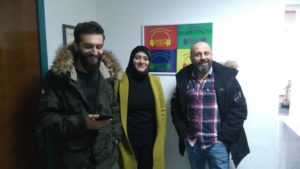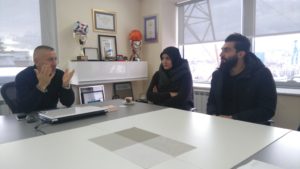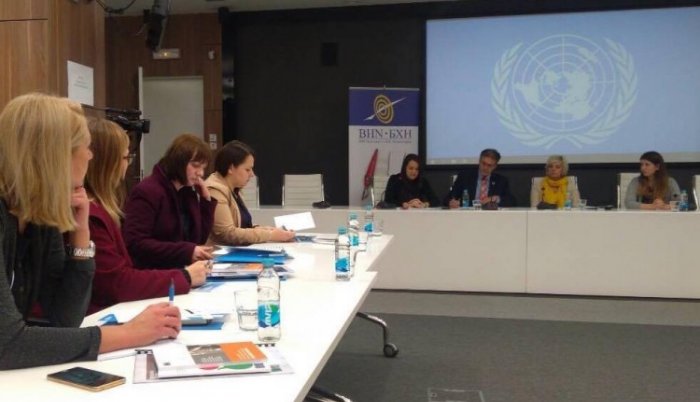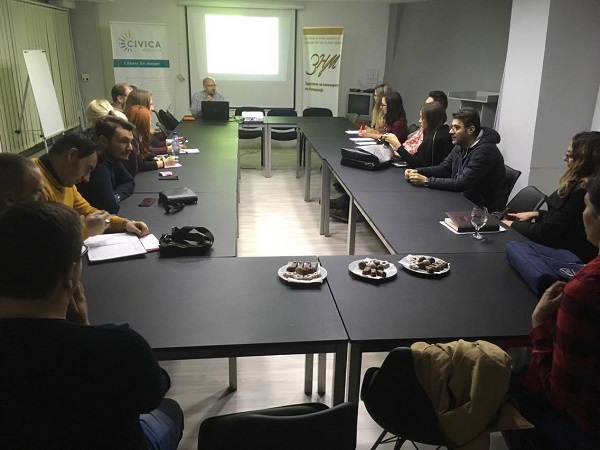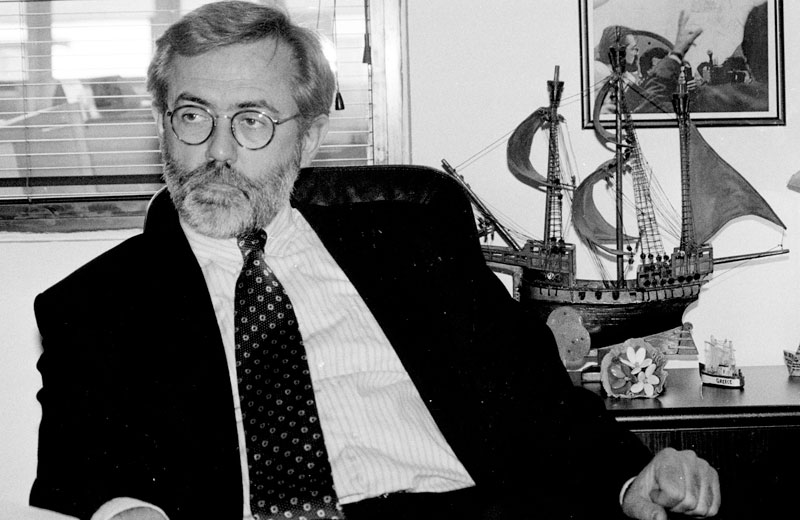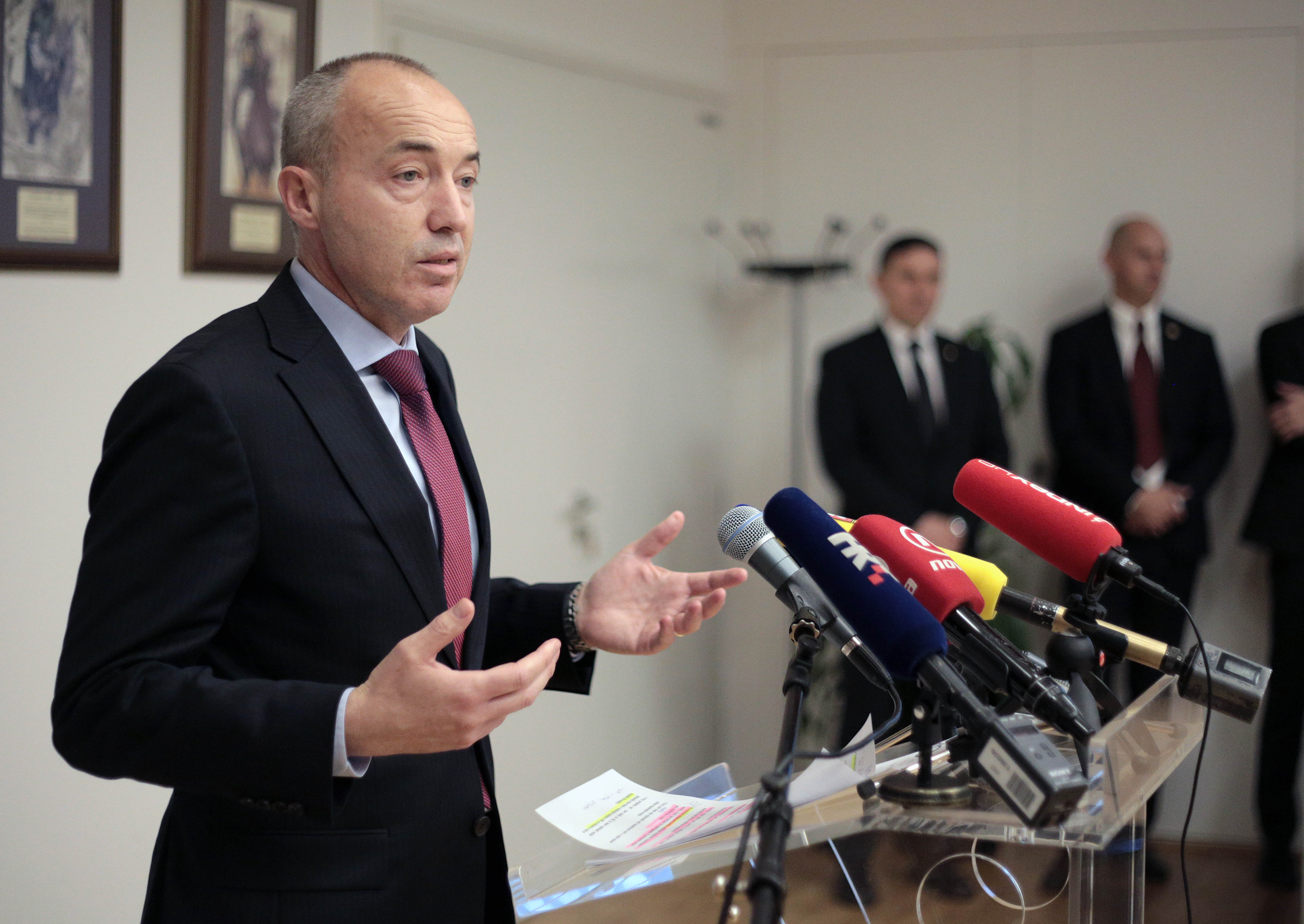SARAJEVO, 04.12.2017.-Business earnings of small, local and public media houses, deriving from commercial marketing sector incomes could hardly be considered sufficient, regarding the gap between the amount these media houses receive from the budget (public money distribution) and the amount required for regular work and operation of any media house in BiH. For the long period of time, many assumed that biggest media advertiser in Bosnia and Herzegovina was actually the state itself.
This served as some kind of presumption, based on estimates conducted by media analysts, but it was only until the survey and research in 2015, conducted the Media Development Center and analysis from Sarajevo gave first concrete information, regarding the amount of public budget money, (at different governing levels) confirming that this money has actually been transferred to bank accounts of numerous BiH media houses. CRMA discovered that the above-mentioned amounts equaled nearly BAM 30.0 million per year.
The survey and research showed that public budget funding money has been used to purchase and buy programs and equipment for public media houses; it has been used to pay for commercial advertisements, holiday greetings, finance particular shows, including promotion of texts/articles, videos and music video spots etc. We found out specific and interesting information like, “Herceg Bosna” radio station has been financed from at least eight (8) different public budget sources, including the public budget money from Hercegovacko – neretvanska zupanija (Canton of Herzegovina and Neretva), it has been financed from Stolac Municipality public budget money, including the municipalities of Citluk, Tomislavgrad, Livno, Capljina, Kiseljak, and Ljubuski. We also got to know that TVSA has been charging Sarajevo City Council, and charg- ing 6 other municipalities for their “current affairs program” (broadcasted on TVSA every day), also charging individuals for taking part in live TV shows and broadcasting of celebrating sessions of various kinds.
Simultaneously, this was the least known amount in this particular research. Due to certain limitations of permanent projects, (where this survey and research have been conducted), the research about this particular topic and issue did not comprehend and comprise the information regarding courts and prosecutors’ offices, miscellaneous founda- tions, agencies, institutes, institutions, public institutions. During the period of around four months, the period for the collection of information and data appli- cable, all reports have been inspected and thoroughly overlooked (regarding the implementation of budget procedure for 2013 and 2014) at the state level, Entity levels and Brcko District level, including municipalities, cities and towns throughout BiH. Along with these reports, available audit reports and official gazette have also been overlooked, analyzed and examined. More than half of this amount (BAM 30.0 million), that is, the sum distributed to media houses on annual basis, was actually dispersed to local public media houses such as 12 local TV stations and 61 radio station. Cantons, municipalities and cities/towns in Federation in 47 local public media houses, operating in this particular Entity alone, invest, through their regular annual financing programs, around BAM 12.5 million.
There were also 23 similar media houses in the Republic of Srpska and their work and operations were financed and funded by some BAM 4.0 million per year. In their establishing acts, it is often indicated and highlighted that most of these media houses should mainly finance themselves and derive money from their own sources and incomes. In most cases this is the case; however, Business earnings of small, local and public media houses, deriving from commercial marketing sector incomes could hardly be considered sufficient, regarding the gap between the amount these media houses receive from the budget (public money distribution) and the amount required for regular work and operation of any media house in BiH. Besides, members of the management of these media houses are appointed by local governing official authorities.
We could then easily assume that such situations put journalists of these media houses into adverse and unfavorable positions, bearing in mind that their existence would consequently depend on the will of local political officials, that is, it would depend on the will (and mood) by municipal and city mayors. Journalists, facing this situation, tend to avoid asking and rising “unpleasant and tricky questions” and try not to “wave around” with their personal opinions and attitude, accepting (voluntarily) to be referred to as, (in words of Professor Lejla Turcilo), “official microphone holders”. “If you choose, select and appoint members of the management, if you give money to them, then the power and control are on your side too. This initial and starting stage puts a journalist in unfavorable and unjust position in the first place.
It is hard to believe that the entity, whose manager has been appointed by the local governing officials, and the person that received or in fact has not received his wages, (depending on whether the budget is full or empty for this field), would dare to ask and raise unpleasant questions addressed to persons giving them all that money and appointing the management members as well”, claimed professor Lejla Turcilo during the interview regarding this rather sensitive issue in December 2016. She also added that we quite often have situations where the knowledge about the journalism of management members in such local media houses, it is in general very limited so they are capable of “buying silence” or they indeed know how to “buy affection”. “These are two crucial problems – “buying the silence and buying the affection” through the appointing of biased officers on both, managing level and on lower levels as well, all the way down to appointing very subordinate and biased journalists too. We have the selection of biased people, as well as financing, since the disciplinary methods thus force media houses to become subordinate subjects and remain under control”, said professor Turcilo of the Faculty of Political Sciences in Sarajevo Having all of this in mind, the question is actually, how necessary the imposing media with an open pressure actually is.
Journalists often prefer self and auto-censorship by themselves. Open pressures are not very obvious and do not often take place. Journalists that used to be or still are under pressure imposed against them, rarely decide to speak in public about this particular problem. Pressures are, quoting our colleagues, conducted in a very subtle manner and sometimes the pressure can hardly be identified either. “People that are considered as those that would not take this pressure seriously and personally (same way as the media owner/entrepreneurs would select and appoint their editors), are selected and appointed for work. This is, therefore, a chained process. “Disputable and litigious” issues usually undergo very strict editing controls, described as serious information or situation. They don’t even hesitate from writing complete texts with only a formal mere signature (beneath) the text/article of the person recording the interview. Years ago these texts would have been given to speakers so they could read them and only journalist’s initials would then appear in newspapers, underneath the text.
I am afraid that things have gone too far nowadays as they reached the stage where people literally accept to put their signature (beneath the text/article) without even inserting quotation marks (“) where required”, claimed my collocutor (anonymous source) who emerged after the CRMA media financing text had been released in public. This person (my source) told me that pressure against journalists would usually (and mostly) go through editors, “It is certainly more sad and tragic that “editors” remain intact in their dedicated work and their works reach the stage where their hidden and unexposed employers would remain surprised with the amount of the submergence present amongst their inferiors that had, on the other hand, been appointed to perform assignments and duties for their above-mentioned superiors.
These editors, with all their enthusiasm, but also with significant privileges they are provided with, (with very few exceptions), would become subordinate to many powerful individuals, groups etc. Unfortunately, they get public respect because every political party would usually support such “editing “or “journalistic” profile”, said my source.
All my collocutors in survey and research covering this media financing issue, agreed that particular political powerful persons consider public local media their own and personal property, quoting certain cases, where local politicians would select and appoint cameramen that would record them (politicians). They often misuse their liberty to that level and allow themselves to call journalists on the phone early in the morning shouting at them and asking:”Why did you insert and posted my photo?”
My collocutors also agreed that non-transparency in spending public budget money on media houses represents a general cancerous problem in this particular field in BiH. Media financing from the budget sources does not cease with certain subventions or grants for certain media houses, instead it continues through commercial advertisements, including trading posts, greetings etc.
“On one hand, a lot of money is spent throughout the area, and there is no positive feedback and effect deriving from this, (in terms of information sense), as far as the general public in BiH is concerned. On the other hand, there is shortage of money for other projects that are considered more vital and important for the public in BiH. This only confirms that the politics of creating the budget and the politics supporting the investing in municipalities, are founded and based on obviously different principles and parameters, instead of being purely based on genuine public interests”, claimed Lejla Turcilo during the interview in 2016.
This text is a part of E-Bulletin– second edition of special serial of BHN online bulletin implemented through the “Media and Public Reputation” (origin. “Mediji i javni ugled”) project, also representing a contribution to public debate regarding the transparency of media ownership and upholding and encouraging the passing of set of laws aimed to advance media field and information market in BiH.


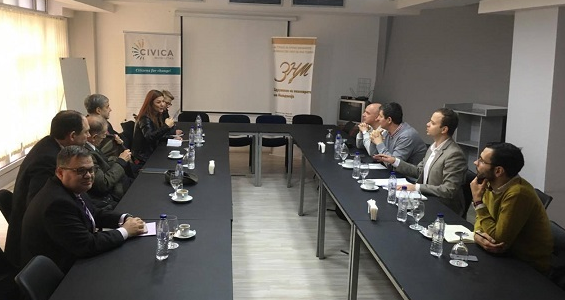
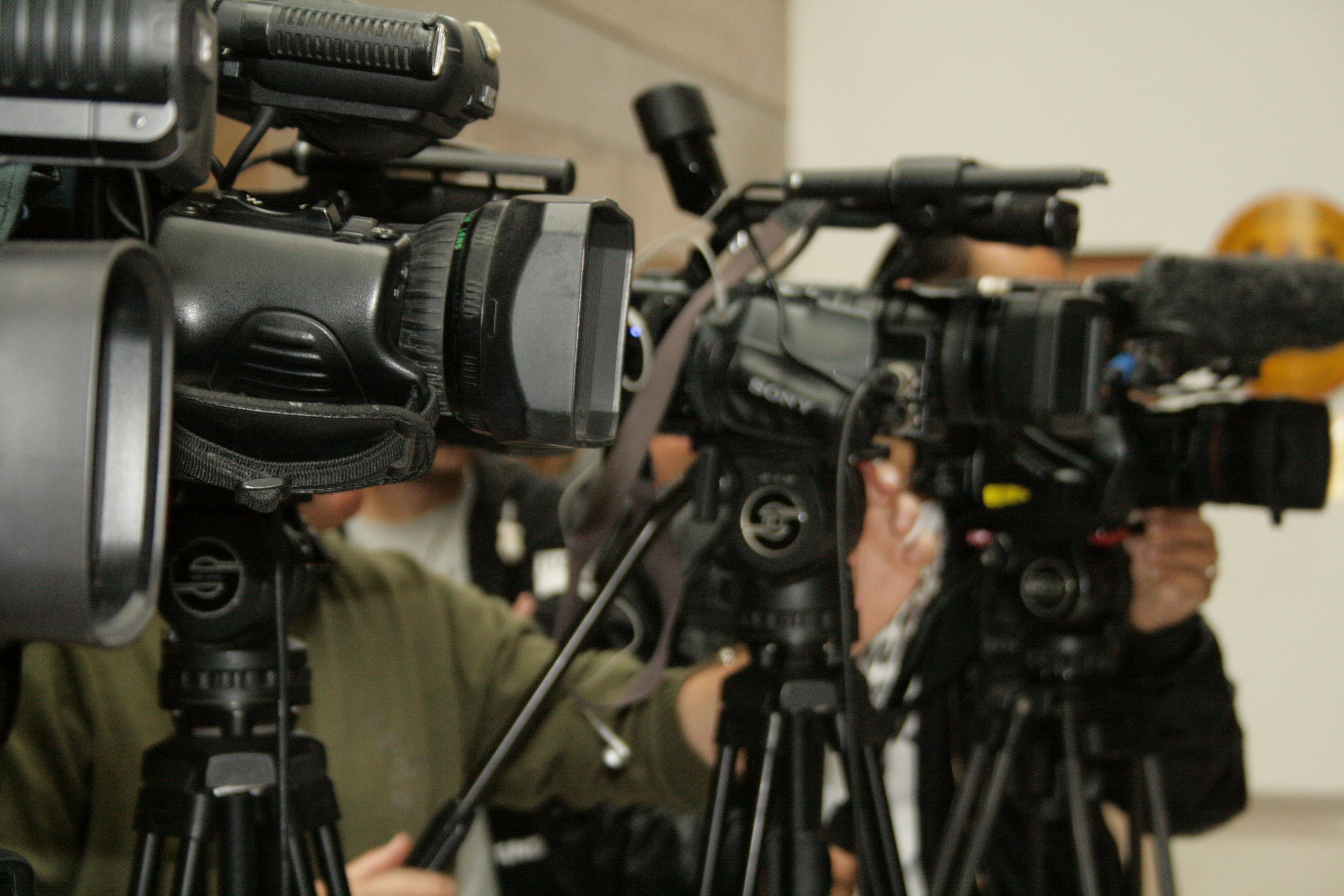
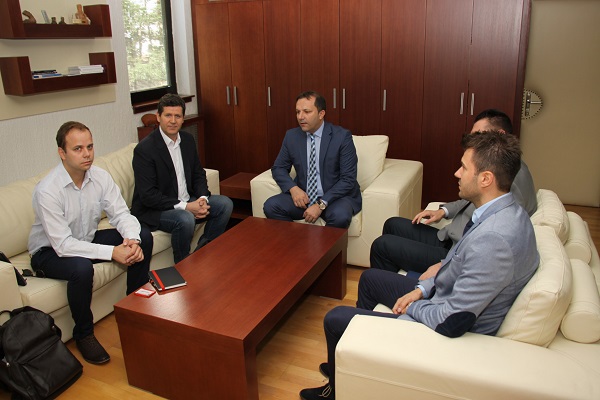
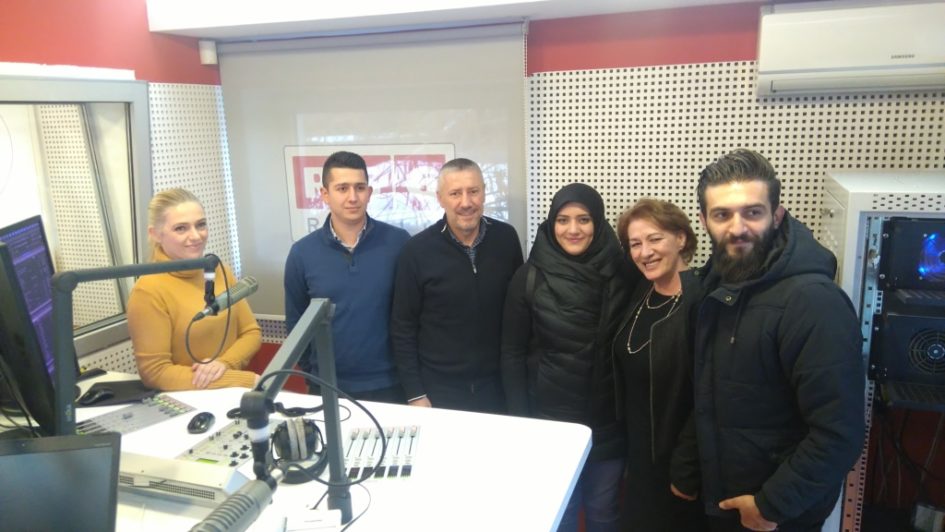
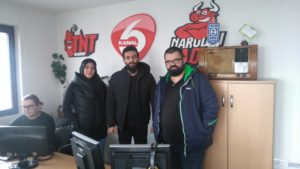 SARAJEVO, 30.11.2017. – BH Journalists Association hosted media professionals of Syrian radio station “Nasaem”, which was founded in late 2012 with headquarters in Gaziantep on the border of Syria and Turkey.
SARAJEVO, 30.11.2017. – BH Journalists Association hosted media professionals of Syrian radio station “Nasaem”, which was founded in late 2012 with headquarters in Gaziantep on the border of Syria and Turkey.